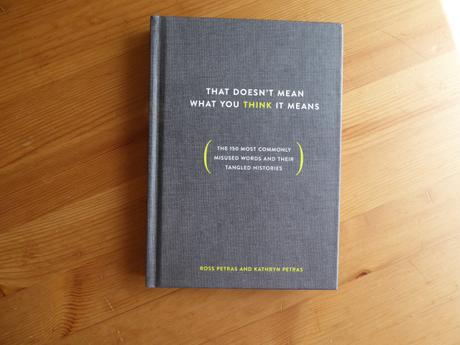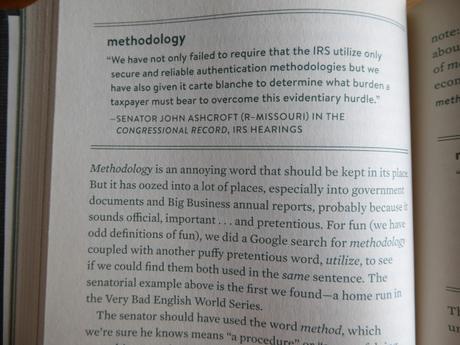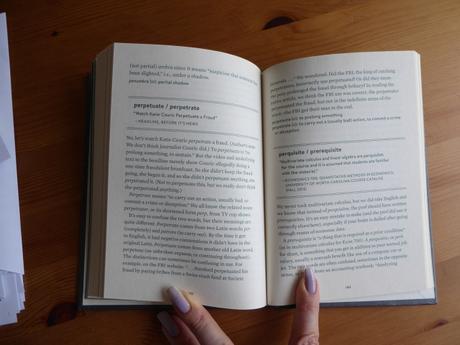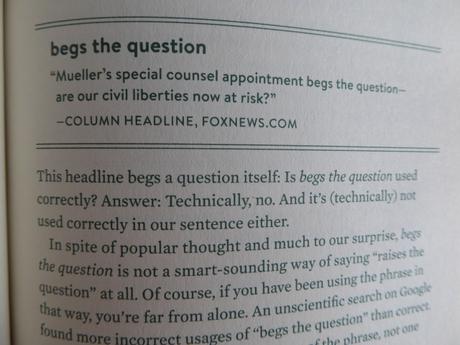
Are you fond of words and their etymology, their meaning, their use? Do you chuckle when someone misuses a word and the sense of the sentence is totally not what the speaker/writer intended? I’m one of those people. Endlessly fascinated by words and their meaning. Easily amused by their misuse.
If you’re like me, then That Doesn’t Mean What You Think It Means is the perfect book for you. The authors have compiled 150 entries in which, starting from a quote in which a word is misused, they explain the history, the various changes in the meaning of certain words and their correct use. Some words are on their own like scarify or refute, others paired with a word that either sounds similar or has a similar meaning like ingenious/ingenuous, hurdle/hurtle. There are also expressions like begs the question. The entries are in alphabetical order starting with a priori and ending with wet your appetite/whet your appetite.

Many of the quotes made me chuckle, but so did the entries. They are not only informative but often very funny.
Here’s the beginning of the entry for preternatural
“Whole Foods . . . is the largest supermarket in Manhattan. Milling about its preternaturally clean aisles and sculptured displays of produce, shoppers move pastorally slowly by New York standards.” – From Greening the red, white, and blue: The bomb, big business, and consumer resistance in post-war America
Unless you think finding grass-fed beef steaks for 6.99$ a pound is a paranormal event, going to Whole Food isn’t a supernatural experience. It seems kind of ordinary to us.
The authors then go on to explain the Latin source of the word, compare it to the word supernatural, which is close, mention where it’s been used and how and then end with the definition.
I was surprised that I don’t mix up many of these words, even though English isn’t my native language, but that is certainly because many of the words are Latin or Greek based and can also be found in French and German. Plus I had eight years of Latin at school.

But there were word pairings like nauseous and nauseated that I also misuse. I didn’t know that you shouldn’t say you feel nauseous about something but nauseated. The thing that makes you feel nauseated is nauseous.
Even though I was familiar with many of the words, I didn’t always know where exactly they came from or how they were used formerly. Nauseous, for example, really did once mean nauseated in the US.
Here are a few more of the pairings that are often misused or mixed up:
all together/altogether, loath/loathe, tortuous/torturous, economic/economical.
Nobody is likely to misuse the words of this entry any day soon:
Pandemic/Epidemic/Endemic
“In 2016, the board clashed with directors of the film Udta Punjab, a film depicting the drug pandemic in the west Indian state of Punjab, when it asked for multiple cuts.” CNN
They obviously mixed up pandemic and epidemic.

I bought this book when it came out in 2018 and since then it has become a favorite to which I return again and again. I always discover something, always learn something. How to really use some words or about the original and former use. It’s a book that would appeal as much to those who love grammar as to those who are interested in the origin of words.

posted on 16 May at 11:41
Rojgar result is a job portal which give all the latest information about latest rojgar result ,sarkari result.
posted on 16 May at 11:41
Sarkariexam nice article